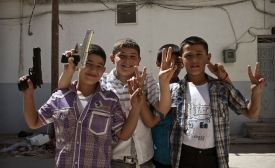counterterrorism
The use of diplomacy in general and, in particular, to help create a global anti-terror coalition does not need to be demonstrated. Face-to-face diplomacy, at all levels, but above all in the Arab world, where personal relationships are culturally important is much less expensive than security operations, not to speak about the military ones, and it may substantially contribute to improve anti-terror cooperation.
In the mid-2000s, when the latter perspective was ascendant, the US and UK launched a "Cultural War on Terror", mobilising art, music and film - what the state department called Public Diplomacy 2.0 - aimed at disrupting the "jihadist narrative" and spreading liberal interpretations of Islam
Led by the inter-agency Center for Strategic Counterterrorism Communications (CSCC), the Obama administration has taken the war on ISIS to social media platforms such as Twitter and YouTube, where such initiatives as the Think Again Turn Away (@ThinkAgain_DOS) have emerged. This campaign aims to counter-radicalization and dissuade young Muslims from joining ISIS.

Anti-extremism messaging isn't working. So why are governments reluctant to change tactics?
Schools need both a national strategy and individualised approaches to prevent the radicalisation of students drawn to Islamic State and other extremist groups, an Edith Cowan University counterterrorism researcher says.







